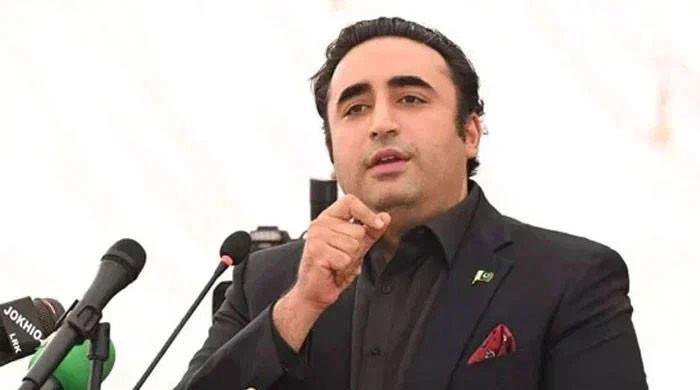PPP Chairman Criticizes India’s Actions Regarding Indus Water Treaty
ISLAMABAD: Following India’s announcement to hold the Indus Water Treaty in abeyance after the Pahalgam incident, Pakistan Peoples Party (PPP) Chairman Bilawal Bhutto-Zardari stated that New Delhi’s recent independent actions would result in its isolation, both at home and abroad.
Speaking on a program, the former foreign minister remarked, “Such actions were not taken even during wartime. India’s current approach is unprecedented, indicating that its focus is not on combating terrorism but on exploiting it for political advantage.”
The statement follows a deadly gun attack in Indian Illegally Occupied Jammu and Kashmir (IIOJK), where 26 tourists were killed in the Pahalgam area, including a Nepali national.
In response to the attack, India implemented independent measures against Pakistan, including suspending the water-sharing treaty, announcing the closure of the main land border crossing, reducing diplomatic ties, and retracting visas.
Pakistan responded by ordering the expulsion of Indian diplomats and military advisors, canceling visas for Indian citizens (except Sikh pilgrims), and closing its side of the main border crossing.
The United Nations (UN) has appealed to both Pakistan and India to exercise “maximum restraint,” emphasizing that any issues between the two countries should be resolved peacefully through meaningful dialogue.
During the program, Bilawal emphasized that India does not have the authority to unilaterally suspend the Indus Waters Treaty, highlighting its international recognition and the involvement of other signatories, including the World Bank.
Bilawal added, “Weaponizing water at a time when the world faces the threat of climate change is both irresponsible and immoral.”
He warned that if water becomes a cause for war, future generations will be trapped in a cycle of conflict. He stated, “No country will support actions that undermine an internationally recognized water-sharing agreement.”
The PPP chairman also stated that India has consistently shown a lack of interest in peace and is instead focused on systematically eroding the internationally recognized status of IIOJK. He noted, “The revocation of Article 370 was not an act against terrorism but a crackdown on peaceful protesters and political leaders.”
Bilawal accused India of blurring the lines between legitimate resistance and terrorism, avoiding its international legal responsibilities in Kashmir by continuously blaming Pakistan. He said, “They believe they succeeded before and can continue repeating it, but the world is now seeing through these tactics.”
He added that while the world unites in condemning acts of terror, no one is ready to support India’s unilateral actions to politicize shared resources or violate international agreements.
Regarding the contentious canals project, Bilawal stated that the federal government made a responsible decision and that any final approval would come through the Council of Common Interests (CCI).
He remarked, “It has been agreed that no new canal will be built without consensus. Unilateral decisions are not effective in a democracy.”
He concluded by saying that certain elements are attempting to create regional tensions, particularly between Sindh and Punjab, for their gain. He affirmed, “Such detrimental forces will be addressed politically.”



Comments (0)
No comments yet. Be the first to comment!
Leave a Comment